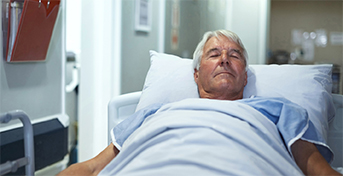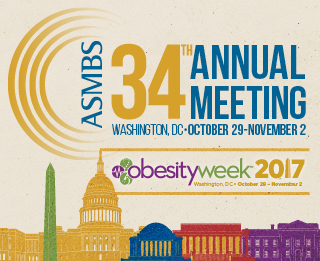Abstract Acceptance For A Seattle Presentation
Presentation about what?
Dr. Benjamin Clapp accepted the abstract presentation about: An unusual presentation of Coccidioidomycosis with peritoneal involvement in an immunocompetent individual.
What is Coccidioidomycosis?
Coccidioidomycosis is a fungal infection endemic to the southwestern United States, Central America, and South America. Coccidioides is ubiquitous in many of these endemic regions, with near 100% seroconversion in some communities.
Two-thirds of these mycotic infections may be asymptomatic.
The most common presentation of coccidioidomycosis consists of “flu-like” symptoms or pneumonia.
Less than five percent of symptomatic cases progress to disseminated coccidioidomycosis which may involve any organ system.
Very rarely infection may include the peritoneum.
We report a case of coccidioidomycosis with peritoneal involvement in an immunocompetent individual.
PRESENTATION DETAILS
Abstract ID: 84804
Abstract Title: An Unusual Presentation of Coccidioidomycosis with Peritoneal Involvement in an Immunocompetent Individual
Session Name: iPoster Session (Non CME)
Program Number: Program Number will be assigned in January 2018
Session Date: Thursday, April 12, 2018 and Friday, April 13, 2018
Session Time: 10:00 AM – 4:00 PM
What is Colorectal Cancer?

So what is Colorectal Cancer? Colorectal cancer is cancer that occurs in the rectum or colon. Colorectal cancer treatment involves chemotherapy, radiation, and colorectal surgery.
Colorectal cancer is also known as bowel cancer or colon cancer. It is a type of cancer that starts in the colon or the rectum. Cancers develop when cells in the body begin to grow without control. The colon and rectum are parts of the digestive system and make up the large intestine.
Colorectal cancer is the world’s third most common cancer after lung cancer and breast cancer. However, colorectal cancer is one of the most preventable and treatable cancers when detected early. The key to preventing colorectal cancer is
What Causes Colorectal Cancer?
Colorectal cancer typically begins as slow growing, small growth in the bowel (rectum and colon). Over time these pre-cancerous growths (polyps) progress into cancer.
Colorectal Cancer Risk Factors
Risk factors can increase your chances of developing cancer. The risk factors for colorectal cancer include:
- Age over 50
- Family history of colorectal cancer or polyps
- Hereditary nonpolyposis colon cancer (HNPCC) or Lynch syndrome
- Crohn’s disease (ulcerative colitis)
- Diet rich in fat and red meat
- Cigarette smoking
Colorectal Cancer Prevention
The best way to preventing colorectal cancer is to go for screening so that the cancer is found at an early stage before it begins to grow. However, you can reduce your risks of getting colorectal cancer by making major lifestyle changes such as taking regular exercises, eating a balanced diet, not smoking and knowing your family history.
Colorectal Cancer Symptoms
Colorectal cancer symptoms take time to show. It’s important to be proactive and talk to El Paso colon cancer specialist for a possibility of colon cancer screening. The symptoms of colorectal cancer include:
- A change in bowel habits such constipation and diarrhea
- Rectal bleeding
- Fatigue accompanied with weight loss for no reason
- Persistent abdominal discomforts like cramps, gas and bloated stomach
- Nausea or vomiting
Early signs of colorectal cancer do not include pain. Hence, it’s important not to wait to see the doctor as early detection can save your life.
Best Quality Colorectal Cancer Screening & Treatment in El Paso
At El Paso Bariatric Surgery, we offer comprehensive colorectal cancer treatments based on what stage your cancer is diagnosed at. We also offer support and expert care to you stay healthy and active during and after your colorectal cancer treatment in El Paso.
Best colorectal cancer surgeon in El Paso Dr. Benjamin Clapp offers world-class screening and treatment for colorectal cancer that includes chemotherapy, radiation, and surgery.
If you’re worried about colorectal cancer or have been diagnosed with it, don’t despair. Come to our conveniently located state-of-the-art clinic in El Paso for screening and effective treatment right away.
Contact us to schedule your appointment today.
How Long Does It Take to recover From a Hernia Repair Surgery?

Recovery from hernia repair surgery varies with every patient. Dr. Benjamin Clapp – top rated bariatric surgery specialist in El Paso discusses the recovery period after hernia surgery.
Each year, hundreds of thousands of hernia surgeries are performed in the U.S. While all surgical procedures come with some risks, majority of patients who have had hernia surgery recover quickly and do well after the operation.
Some patients may develop moderate to severe pain after laparoscopic surgery but many can expect to go home on the day of, or the day after your operation. You will feel sore and some discomfort in your groin after your hernia repair surgery and painkillers can help relieve the pain.
Your recovery period after hernia repair surgery in El Paso should be as follows:
Days 1-4
During this time, you should only do basic daily functions such as eating at home or walking around the house. Do not go to work or school or perform work related activities.
Days 4-7
Four days after hernia surgery, a majority of patients should be able to return to work. However, you should avoid lifting heavy loads. During this time you’ll be experiencing mild pain hence the need for occasional painkillers. You can also do light exercises like light stretching or walking.
Week 2
At week 2, all patients should be able to resume work or school. But you should still limit the amount of weight you carry to less than 20 pounds. Exercises recommended at this stage are jogging, yoga, biking, and light weight lifting. You’re likely to experience stiffness and occasional discomfort at this stage.
Week 3
At week 3, expect to resume about 85% of your normal daily activities. The types of exercises you can do at this stage include running, cycling, swimming, yoga, golf, and light weights at the gym.
Week 4
By week 4 you should resume work or school activities fully. You can also return to heavy or more demanding tasks without feeling any problems. Exercise you can do during this period includes heavy lifting, contact sport, competitions and other regular training exercises. While you may still experience tugging, pulling, aches, heaviness, burning, swelling or occasional discomfort, it is completely normal.
You may also experience constipation during the recovery period due to oral pain medicines. The risks of constipation can be reduced by drinking lots of drinks and consuming plenty of vegetables, fruits, and high-fiber foods.
Taking care of yourself
It is normal to feel post operative pain around the wound after your hernia operation. Most patients will experience some level of bruising and swelling in the area of a hernia operation.
Look after yourself by ensuring you follow instructions about your hygiene and caring for the wound.
Best Hernia Repair Surgeon in El Paso – Dr. Benjamin Clapp
El Paso Bariatric surgery is devoted to providing you with the best hernia repair surgery in El Paso to enhance the quality of your life. Dr. Clapp will discuss keenly your hernia operation needs to determine which surgical procedure will help you recover more quickly.
Request an Appointment
Schedule an appointment with the best hernia surgeon in El Paso TX. Contact us online or call our office at (915)-351-6020.
Welcome to Our Weight Loss Surgery Blog
Thank you for visiting our blog! Check back often as we will be posting articles about weight loss surgery and maintenance.
Bariatric Surgery in El Paso, TX 79902

Our surgeon, Dr. Benjamin Clapp, is fellowship trained in bariatric surgery and has been in practice for over 10 years. He is board certified in General Surgery and specializes in weight loss surgery.
Dr. Clapp is also an Associate Clinical Professor of Surgery at Texas Tech School of Medicine and has rotating medical students. He is currently the Chief of Surgery at Providence Memorial in El Paso and the medical director of the bariatric center there.
Benjamin Clapp, MD FACS received an honorable mention for a scientific paper at the Society of Laparoendoscopic Surgeons in Boston. The paper is about ulcer formation after gastric bypasses, a procedure we specialize in here at El Paso Bariatric Surgery.
Learn More about Dr. Benjamin Clapp
Weight Loss Surgery Performed by El Paso Bariatric Surgery
Weight loss surgery is indicated in patients with a Body Mass Index or BMI (need BMI calculator) of 35 or greater with two associated medical problems related to obesity or a BMI of 40. These operations are generally performed laparoscopically (through small incisions) and usually require one to two nights in the hospital.
Learn More about Weight Loss Surgery.
Insurance Accepted
At El Paso Bariatric Surgery, we accept the insurance plans listed on our insurance plan page. Feel free to call us at (915) 351-6020 if you have any questions.






